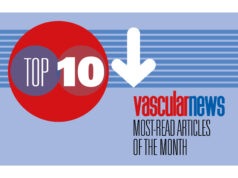The US healthcare reform will affect innovation and lead to poor quality patient care, Thomas Fogarty, Institute for Innovation at El Camino Hospital, Mountain View, California, told delegates at the VEITHsymposium, in New York.
“If you develop a new technology and nobody pays for it – which is what is going on – nobody is going to use the new technology,” said Fogarty. “There is a reverse incentive, actually. They will pay you to do the old technology but will not pay you to embrace the new technology,” he told the VEITHsymposium News.
Fogarty said that the first step that vascular surgeons can take is to become familiar with the reforms.
“Elected leaders are unlikely to listen to physicians about the negative effects of healthcare reform because they view physicians as having too much at stake. It is true that physicians do have some self-interest in healthcare reforms, but they also have the benefit of the patient in mind; they want their patients to get better. But they want to be paid for it,” said Fogarty. Elected officials “will listen to patients, so the physician has to educate patients about what is going on,” he said. Physicians need to let patients know that they will not be getting the best possible care. Patients should be asking their representatives “for the best care, delivered in a cost-effective way.”
The cost effectiveness of healthcare is a separate but related issue. “I do not think that we, as physicians – nor has the industry – really addressed that aspect of optimising patient care,” Fogarty said. “Part of innovation has to be reduced healthcare costs. Vascular surgeons and industry need to do a better job of demonstrating the cost benefits of new devices and techniques. Not enough analysis is being done to determine a device’s contribution to healthcare cost reduction,” said Fogarty.













